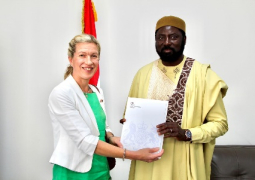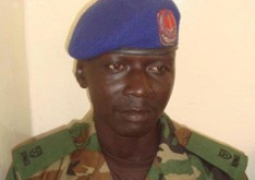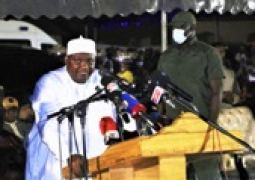The consultative workshop was conducted on Friday at the National Assembly Auditorium at Banjul, with its purpose to train and further strengthen the capacity of National Assembly members of the Standing Committee on Human Rights and Constitutional Matters on human rights and related issues, and familiarise them (NAMs) on the functions and mandates of the Rights Commission.
Part of its aim was also to further the already established working relationship between these two instrumental institutions of state, on whose shoulders lies the oversight responsibility of handling matters relating to human rights beside their primary functions.
In his opening remarks, Emanuel Joof, the chairman of the Commission recalled that “in December 2017, The National Assembly of The Gambia passed into law the National Human Rights Act, 2017, which was assented to by the President on the 24th of January, 2018. The act establishes the national human rights commission as a permanent independent body with a broad mandate to promote and protect human rights and fundamental freedoms in The Gambia, investigate human rights violations, and to monitor compliance; to proffer advice to the government on matters relating to human rights and provide redress and remedial actions to victims.”
In June, 2018, the National Assembly established the Standing Committee on Human Rights and Constitutional Matters, which comprises of 12 members including a chairperson and assigned it with the mandate or responsibility which includes scrutinising matters concerning human rights and constitutional issues, and particularly, compliance of the executive and all other organs and agencies of the state on issues relating to rule of law, fundamental human rights and freedoms , and defence and supremacy of the constitution . Thus, closely linking the mandate and work of NHRC to that of the standing committee
Since its establishment (the Standing Committee on Human Rights), there has been a good working relationship between the two bodies. However, the chair of the Rights Commission expressed that there is need to “further strengthen and frequent interface between the two bodies considering the important role that the National Assembly plays and in particular the Standing Committee, for promotion and protection of human rights. There is a need for greater collaboration and coordination between the NHRC and the Standing Committee for better promotion and protection of fundamental rights and freedoms.
“We would be exploring the possible strategies to employ in order to further strengthen and cement this partnership. It is within this in mind that we organised this 2-day consultative workshop.”
It is essential to enhance the capacity of members and staff of the Parliamentary Committee in understanding the mandate and functions of the Commissions as well as Gambia’s obligations under the various human rights instruments; and the expected role of the National Assembly in the implementation of recommendations. We would also appreciate, Mr. Chairperson, the Commission’s technical support to the Committee’s scrutiny role especially the human right compliance of bills and other subsidiary expression, Speaker Mariam Jack-Dnton said.
Joshua Colebourn, the deputy British High Commissioner, expressed his support for the project, saying he looks forward in working with NHRC and other stakeholders in the country.





